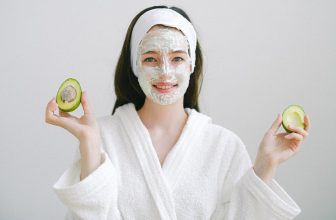
Are you curious about organic makeup but not sure if it’s worth it or have concerns? You’re not alone! With the increasing awareness of the impact of synthetic ingredients on our health and the environment, more and more people are turning to organic makeup. In this article, we explore what organic makeup is, its benefits, which ingredients to look for and avoid, how to tell if a product is truly organic, highlight some popular organic makeup products, and even touch upon whether organic makeup is safe for sensitive skin. So, let’s dive in.
What Is Organic Makeup?
Organic makeup is a type of cosmetic product that is gaining popularity due to its natural and sustainable ingredients. Unlike conventional makeup, which often contains synthetic chemicals and artificial fragrances, organic makeup is made from natural, plant-based ingredients that are grown without the use of synthetic pesticides, fertilizers, or genetically modified organisms (GMOs).
The natural ingredients used in organic makeup are carefully selected to ensure that they are both effective and gentle on the skin. For example, natural oils like shea butter, coconut oil, and jojoba oil are commonly used in organic makeup to provide moisture and hydration to the skin, while also helping to improve skin elasticity and reduce the appearance of fine lines and wrinkles.
In addition, many organic makeup products contain plant extracts like aloe vera, chamomile, and green tea extract, which are known for their soothing and calming properties. These ingredients can help to reduce redness, inflammation, and irritation, making organic makeup a great choice for those with sensitive or allergy-prone skin.
One of the key benefits of using organic makeup is that it is often considered a healthier and more eco-friendly alternative to conventional makeup. Since organic makeup is made from natural, plant-based ingredients, it is less likely to cause skin irritation, breakouts, or other negative side effects. Additionally, organic makeup is often cruelty-free, meaning it is not tested on animals, making it a more ethical choice for conscious consumers.
However, it’s important to note that not all products labeled “organic” are created equal. Some organic makeup products may still contain synthetic preservatives or fragrances, or they may be made with ingredients that are not completely natural. Therefore, it’s important to read the ingredient list and do your own research before purchasing any cosmetic product. Additionally, it’s important to note that while organic makeup may be a healthier and more sustainable choice, it may not be suitable for everyone, and individuals should always consult with a dermatologist before trying any new skincare or cosmetic products.
Is Organic Makeup Better For My Skin Than Conventional Makeup?
Organic makeup has gained a lot of popularity in recent years, and for good reason. It’s clean, eco-friendly, and all natural, harnessing the power of Mother Nature to make you look stunning. And now that the myths have been busted about the efficacy of organic makeups, we know it’s only a matter of that most brands switch to 100% organic- in fact most major brands have either created their own lines or invested in startups which have been making headway. But you still have some doubt right? That little voice in the back of your head keeps asking: “Is organic makeup really worth it?”.
Organic makeup is overall a better choice because organic makeup is made from natural, plant-based ingredients that are less likely to cause skin irritation or breakouts. Additionally, organic makeup is often free from synthetic preservatives, fragrances, and other chemicals that can be harsh on the skin.
However, it’s important to note that not all organic makeup products are created equal, and some may still contain synthetic ingredients or may not be completely natural. Furthermore, some individuals may still experience allergic reactions or sensitivity to certain natural ingredients used in organic makeup. Therefore, it’s important to read the ingredient list carefully before purchasing any cosmetic product, whether it’s organic or conventional. Consulting with a dermatologist can also help you determine which products are best suited for your skin type and concerns.
What Are The Key Benefits Of Organic Makeup? Is Organic Makeup Better Than Conventional Makeup?
Better for your skin:
Organic makeup is made with natural ingredients that are gentle and nourishing for the skin. It does not contain harsh chemicals, synthetic fragrances, or preservatives that can irritate or damage the skin.
Natural, clean ingredients:
Organic makeup is made with natural, plant-based ingredients that are free of synthetic chemicals, such as parabens, sulfates, and phthalates. This can be better for the skin, as these chemicals can be harsh and potentially harmful.
Long-lasting:
Despite being made with natural ingredients, organic makeup can be just as effective and long-lasting as conventional makeup. Many organic brands offer high-quality products that provide excellent coverage and staying power.
Non-toxic:
Conventional makeup can contain ingredients that are considered toxic or harmful, such as lead, mercury, and formaldehyde. They also contain chemicals such as parabens, phthalates, and sulfates, which have been linked to a range of health issues. Organic makeup is typically free of toxic chemicals, making it a safer choice for those who are concerned about their health as well as those with sensitive skin.
Fewer allergens:
Conventional makeup can contain a range of ingredients that can cause allergic reactions or skin irritation, such as synthetic fragrances and preservatives. Organic makeup is often free of these allergens, making it a safer choice for those with sensitive skin.
Eco-friendly:
Organic makeup is typically made with sustainably sourced plant ingredients that is grown without artificial pesticides and fertilizers which means this farming method is better for the environment e.g. no nitrogen run off or risk of chemicals getting into local water supplies. Organic makeup is often packaged in eco-friendly materials that are recyclable or biodegradable, so this makes it a better choice for those who are environmentally conscious.
Cruelty-free:
Many organic makeup brands are committed to being cruelty-free, meaning they do not test their products on animals. This is important for many consumers who are concerned about animal welfare.
Versatile:
Organic makeup is available in a wide range of colors and textures, making it suitable for all skin types and skin tones. It can be used for everything from a natural everyday look to a dramatic evening look.
Overall, organic makeup is often considered better than conventional makeup because it is made with natural, non-toxic, and eco-friendly ingredients that are better for the skin and the environment. Organic makeup offers many benefits that make it a great choice for those who are looking for a safer, more sustainable, and more eco-friendly option for their beauty routine.
Which Ingredients Should I Look For In Organic Makeup, And Which Ones Should I Avoid?
When looking for organic makeup, it’s important to pay attention to the ingredients list and avoid harsh chemicals that can be harmful to your health and the environment. Here are some ingredients to look for in organic makeup and which ones to avoid.
Ingredients to look for:
Natural oils:
Look for makeup that contains natural oils like coconut oil, jojoba oil, and avocado oil. These oils can help moisturize and nourish your skin.
Botanical extracts:
Ingredients like chamomile, aloe vera, and green tea extract can soothe and calm your skin.
Mineral pigments:
Look for makeup that uses mineral pigments like iron oxide, titanium dioxide, and zinc oxide. These pigments provide natural color and also offer some protection from the sun.
Beeswax and plant waxes:
These ingredients help provide a smooth texture to makeup products like lipsticks and help keep them from drying out.
Natural preservatives:
Look for products that use natural preservatives like vitamin E and rosemary extract instead of synthetic preservatives.
Ingredients to avoid:
Parabens:
These synthetic preservatives have been linked to hormonal disruptions and breast cancer.
Phthalates:
These chemicals are often found in fragrances and have been linked to reproductive issues.
Synthetic fragrances:
These can cause skin irritation and can contain hundreds of hidden chemicals.
Sodium lauryl sulfate and sodium laureth sulfate:
These harsh detergents are often found in shampoos and soaps and can be irritating to the skin.
Petrochemicals:
These ingredients are derived from petroleum and can clog pores and cause skin irritation.
It’s important to note that not all ingredients in organic makeup will work for everyone, and it’s always a good idea to patch test new products before using them on your face.
How Can I Tell If a Product is Truly Organic and Not Just Labeled That Way For Marketing Purposes?
Unfortunately, not all products labeled as “organic” are created equal, and some companies may use misleading marketing tactics to make their products appear more natural or environmentally friendly than they actually are. Here are some tips to help you determine whether a product is truly organic or not:
Look for organic certification:
Look for products that have been certified by a recognized organic certification organization, such as USDA, COSMOS, or Ecocert. These certifications ensure that the product meets strict standards for organic ingredients, production, and labeling.
Check the ingredients list:
Look for products that have a short and simple ingredients list, with recognizable natural ingredients. Avoid products that contain synthetic chemicals or ingredients that are known to be harmful to your health or the environment.
Research the brand:
Do some research on the brand that makes the product. Look for information about their sourcing, manufacturing, and environmental practices. Check if they have any certifications or awards for their commitment to sustainability.
Read reviews:
Look for reviews from other customers who have used the product. Check if they have had positive experiences with the product and if they believe it to be truly organic.
Be skeptical of “greenwashing”:
Be aware of marketing terms like “natural” or “green” that are not regulated. Just because a product is labeled as “organic” does not mean that it is necessarily environmentally friendly or safe.
By following these tips, you can help ensure that the organic products you purchase are truly natural, safe, and environmentally friendly.
What Are Some Of The Most Popular Organic Makeup Products?
The Organic Skin Co Draw The Liner Eye Liner
Ilia Beauty Limitless Lash Mascara:
This organic mascara is a favorite for its lengthening and volumizing effects. It is made with natural ingredients such as beeswax and shea butter, and is free of harmful chemicals.
Pai Skincare Cleansing Oil Makeup Remover
Henné Organics Luxury Lip Tint Lipstick
INIKA Organic Liquid Foundation
Endlessly Beautiful Natural Organic Mascara
Is Organic Makeup More Expensive ?
It depends. Organic makeup can be more expensive than brands found in grocery stores but are often less expensive than than many of the popular brands found at premium stores.
Organic makeup is more expensive than mass market, conventional makeup due to the higher cost of sourcing higher quality organic ingredients and the additional processing required to ensure the products are free from synthetic chemicals. In other words, you get what you pay for: regular store brought brands are cheaper because they are made with cheaper ingredients and it never makes sense to be too cheap with your body and health.
We believe, like with many things in life, if you pay a tad extra you will receive a better quality product hence the reason organic makeup is more expensive is because of several reasons:
Health benefits:
Organic makeup is made from natural, plant-based ingredients that are less likely to cause skin irritation or allergic reactions. It also contains fewer synthetic chemicals that can be harmful to your health.
Environmental benefits:
Organic makeup is made from sustainably sourced, non-toxic ingredients that are less harmful to the environment. It is also produced using eco-friendly manufacturing processes.
Cruelty-free:
Organic makeup is typically cruelty-free, meaning it is not tested on animals.
Higher quality:
Organic makeup is often of higher quality than conventional makeup, with a smoother texture, longer-lasting wear, and more natural-looking color.
Ethical considerations:
Many people choose to support organic makeup brands because they align with their values of sustainability, natural living, and ethical consumption.
Ultimately, whether or not organic makeup is worth the extra cost is a personal decision that depends on your priorities and values. If you prioritize using natural, eco-friendly products and want to minimize your exposure to synthetic chemicals, then organic makeup may be worth the extra cost. However, if you prioritize affordability and do not have any concerns about the potential health or environmental impacts of conventional makeup, then you may prefer to stick with conventional products.
Is organic makeup safe for sensitive skin?
While there is a lot of variation across products, organic makeup is likely to be a safer choice for sensitive skin because it many people with sensitive skin can be prone to irritation and allergic reactions caused by synthetic ingredients commonly found in conventional makeup products, such as fragrances, preservatives, and dyes.
Organic makeup, on the other hand, is made from natural, plant-based ingredients that are less likely to cause skin irritation or allergic reactions. It’s also important to note that if you are using make up on a daily basis some ingredients can cause reactions over time. which is why organic makeup is almost always the better choice.
However, it’s important to note that not all organic makeup products are created equal, and some may still contain natural ingredients that can irritate sensitive skin. For example, some people may be sensitive to essential oils or certain botanical extracts used in organic makeup.
It’s always a good idea to do a patch test before using any new skincare or cosmetic product, especially if you have sensitive skin. Apply a small amount of the product to a small area of skin, such as the inside of your wrist or behind your ear, and wait 24 hours to see if any reaction occurs.
Additionally, if you have very sensitive skin, you may want to consult with a dermatologist or skin care professional before trying any new products. They can help you determine which products are best suited for your skin type and concerns.
Conclusion:
In conclusion, organic makeup is a great option for those seeking natural, eco-friendly products and want to minimize their exposure to harsh synthetic chemicals. Since organic makeup is made with natural, plant-based ingredients it’s less likely to cause skin irritation or allergic reactions, and often has a smoother texture, longer-lasting wear, and more natural-looking color than conventional makeup. Organic makeup is also produced using eco-friendly manufacturing processes, packaged in eco-friendly materials, and is cruelty-free, making it a more ethical choice for conscious consumers. However, it’s important to note that not all organic makeup products are created equal, and some may still contain synthetic or natural ingredients that can irritate sensitive skin. Therefore, it’s important to read the ingredient list carefully and do your own research before purchasing any cosmetic product. Consulting with a dermatologist can also help you determine which products are best suited for your skin.
Copyright © 2023 Organic Shortlist.





